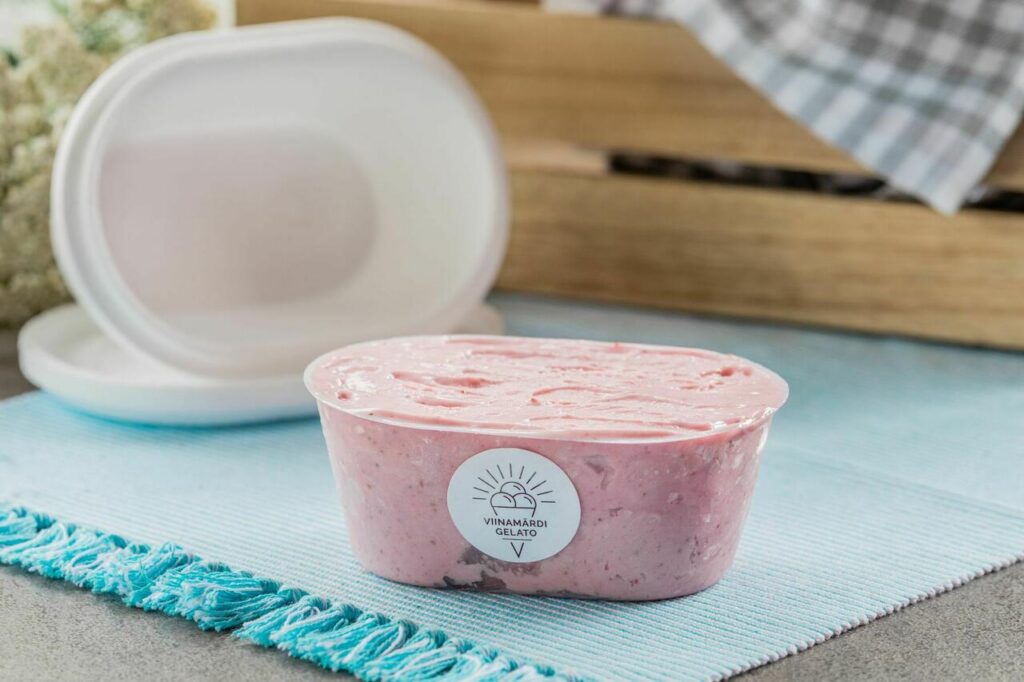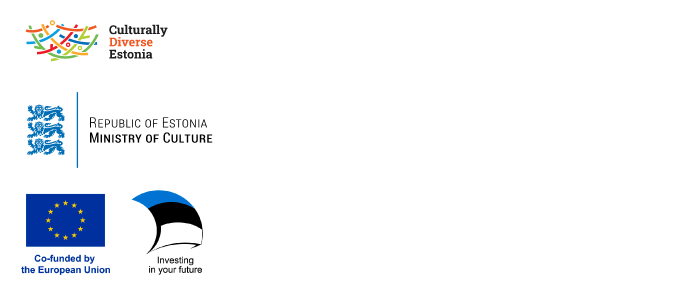Cheesemaker Denis Pretto (41) hails from the charming town of Quinto Vicentino in northern Italy – a place renowned for its rich history, culinary delights, and warm-hearted residents. While it was academic research that first brought him to Estonia, it was love for his Estonian partner that convinced him to stay; together, they bought and restored an old manor house in rural Tartumaa (Tartu County).
Denis has now lived in Estonia for 13 years and knows the country, its people, and business environment inside out. We catch up with him for a quick chat just after the morning’s cheesemaking is complete.
Denis first came to Estonia through academic exchange – initially as an Erasmus student in Sweden, later moving to Estonia for postdoctoral research at the Estonian University of Life Sciences in Tartu. It was there he met Annemari, his future partner and the mother of his children. Denis holds a degree in agriculture and a PhD in animal breeding, while Annemari has a master’s degree in dairy science and a doctorate in food science. Their shared passion for food, agriculture and animals became the foundation of their relationship.
Today, they have two children, a farm, and their own dairy, which produces Italian-inspired delicacies – pecorino-style cheeses, ricotta, burrata, and gelato – from the milk of rare Lacaune sheep.
A knowledge base rooted in Italian expertise
Denis has never lost touch with his homeland. His mother still lives in Italy, and most of the professional contacts he relies on – from technology and raw materials to veterinary advice – are based there. His parents, too, were engaged in farming and dairy production. “If something’s wrong with the animals, I turn to them for advice,” he notes.
When Denis launched his cheesemaking business in Estonia in 2016, he found the environment more favourable than in Italy. “Things were easier here – less bureaucracy, less competition,” he recalls. But after the pandemic and the outbreak of war in Ukraine, circumstances changed. “Nowadays, starting a business in Estonia is just as challenging as in Italy,” he adds.
That said, Denis appreciates the advantages of Estonia’s digital state – much can be done remotely, saving time and nerves. “In Italy, you have to show up in person for everything,” he says with a smile.
When Denis and Annemari breathed new life into the nearly century-old Viinamärdi farm in 2018, six or seven other artisanal cheesemakers also started up. “Now only three or four remain,” Denis says with regret. Given the current economic climate, he admits he wouldn’t start the same business today.

Life in Estonia: saunas, distinctive cuisine, and thoughtful nurseries
Denis has embraced life in Estonia. He fell in love with the sauna during his time in Sweden, and it’s now a weekly ritual. He’s also grown fond of local cuisine – especially early potatoes with dill, onions and sprats. “The range and quality of food in Estonia have improved enormously over the past 12 years,” he praises.
Interestingly, he prefers the variety in Estonian supermarkets to those in Italy. “There are dozens of types of cereal flakes here – in Italy, you’re lucky to find five or six,” he offers as an example. When visiting family in Italy, he always brings Estonian treats – cereals, cheese, and other high-quality products that are either unavailable or of lesser quality back home.
Denis is quick to debunk the myth of Italy as a culinary paradise where every meal is a masterpiece. You need to know where to go – he himself never walks into a random restaurant. Genuine trattorias serving fresh, authentic food are typically found far from tourist areas, often tucked away in quiet corners.
Even when buying gelato, it pays to do some research. “There are plenty of ice cream makers in Italy who just mix milk with powder. You can tell immediately by the taste whether it’s natural or artificial,” he says. At Viinamärdi farm, their gelato flavours are the result of four years of meticulous development. “We use only high-quality natural ingredients – strawberries from Marjamaa farm, pistachio and lemon cream from Italy, and Bourbon vanilla from Madagascar,” Denis explains.

One thing that continues to surprise Denis in a positive way is the abundance of good nurseries and venues for children’s events in Estonia. “Our younger son is finishing nursery school, and they’re organising a graduation party. That sort of thing doesn’t exist in Italy – it seemed odd to me at first,” he laughs.
Italian temperament vs Estonian reserve
When it comes to cultural contrasts, Denis acknowledges that Estonian men are far more reserved than their Italian counterparts. “With an Italian, you’re friends from the first glance. With Estonians, you have to make an effort – but once the barrier is crossed, the friendships are deep,” he says.
Estonian women, on the other hand, strike him as more open and independent than Italian women. “In Italy, it’s still common to live with your parents well into your thirties. In Estonia, people often begin independent life in their early twenties.”
There are also striking differences in national pride. “Italians are only patriotic about football and food. Estonians feel a deep pride in their country,” Denis observes. He was particularly moved by how strongly Annemari feels about her homeland and how thoroughly she knows its history.
A trilingual home and a longing for sunshine
Denis and Annemari are raising their two sons, Artur and Aron, in a trilingual household. The children speak Italian with their father, Estonian with their mother, and the family uses English between themselves. “We fell in love in English, so it would feel strange to switch languages now,” Denis explains. He has a working knowledge of Estonian and speaks it with his employees.
Viinamärdi farm is open to tourists and happy to share its charm.
Though Denis feels at home in Estonia, he sometimes misses the Italian sun – especially during the long, dark months of November, December, and January. “Those three are the hardest,” he admits.
Looking ahead with gratitude
Denis stays busy with work, family, and the business he and Annemari have poured their hearts into. “If I weren’t making cheese, I’d be producing something else – food is a passion for Italians,” he says.
Life in Estonia has taught him self-confidence and people management. “I have three employees now, and that’s helped me become a better communicator and problem solver.”
Though he doesn’t see many cultural similarities, Denis believes Estonians share a certain entrepreneurial spirit with the people of northern Italy. “Estonians want to build things themselves, with their own hands. That’s a familiar feeling.”

The article is part of the media programme “Estonia with many faces,” which highlights the richness and diversity of Estonian culture. The programme is supported by the Estonian Ministry of Culture and co-financed by the European Union.

